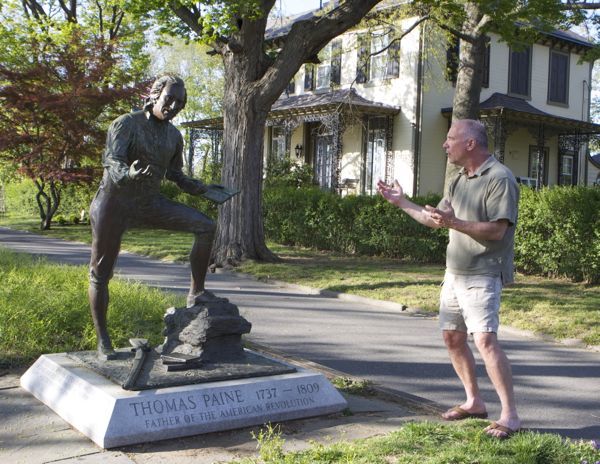From The Magna Carta to Occupy Wall Street, Power Crushes Democracy
Today is Tax Day.
Just as I was having my coffee this morning to stimulate the juices for filing my taxes on time, I was thinking about a topic to write about, perhaps a variant of my prior “Tax Day Essay: On Civil Disobedience” or the themes outlined in “Taming Democracy” – these are the kind of notes I like to post on big days.
Then along came today’s NJ Spotlight Daily Number to prompt a topic.
Spotlight’s Daily Number summarizes findings of a Stockton University report that polls show an abysmal lack of knowledge of the US Constitution and the Supreme Court. This one in particular caught my eye:
10 percent of adults could not name any of the rights of the first Amendment (speech, religion, assembly, and press).
Say what? No mention of the right to petition government for redress of grievances? (something I’ve done many times over many years!)
Shockingly, in a story complaining about the lack of knowledge of the US Constitution, the Spotlight story – and the Stockton University Report it was based on – left out a big piece of the First Amendment: the right “to petition the government for a redress of grievances”.
But then I realized that I was shallow on knowledge of the history of that Right, so I did a quick Google to get a thumbnail glimpse of the history and came across this gem, much of which I was not aware:
“The right of petition recognized by the First Amendment first came into prominence in the early 1830’s, when petitions against slavery in the District of Columbia began flowing into Congress in a constantly increasing stream, which reached its climax in the winter of 1835. Finally on January 28, 1840, the House adopted as a standing rule: “That no petition, memorial, resolution, or other paper praying the abolition of slavery in the District of Columbia, or any State or Territories of the United States in which it now exists, shall be received by this House, or entertained in any way whatever.” Because of efforts of John Quincy Adams, this rule was repealed five years later.213 For many years now the rules of the House of Representatives have provided that members having petitions to present may deliver them to the Clerk and the petitions, except such as in the judgment of the Speaker are of an obscene or insulting character, shall be entered on the Journal and the Clerk shall furnish a transcript of such record to the official reporters of debates for publication in the Record.214 Even so, petitions for the repeal of the espionage and sedition laws and against military measures for recruiting resulted, in World War I, in imprisonment.215 Processions for the presentation of petitions in the United States have not been particularly successful. In 1894 General Coxey of Ohio organized armies of unemployed to march on Washington and present petitions, only to see their leaders arrested for unlawfully walking on the grass of the Capitol. The march of the veterans on Washington in 1932 demanding bonus legislation was defended as an exercise of the right of petition. The Administration, however, regarded it as a threat against the Constitution and called out the army to expel the bonus marchers and burn their camps. Marches and encampments have become more common since, but the results have been mixed.
The powers that be have long sought to stifle the organizing and squelch the voices of the commoners and tame democracy.
The dissenters and commoners have struggled to resist. As this recent US Supreme Court case demonstrates, these are not stale historical matters, but lively raging current debates (see this for the Court’s decision which just so happens to deal with a public employee’s rights with respect to government’s retaliation for exercising those rights, something we have direct first hand experience with!)
So read the history here – it’s a far better investment of time than doing your taxes!
See also:
A Short History of the Right To Petition Government for the Redress of Grievances. (Yale Law Journal).
The First Amendment Right to Petition Government for a Redress of Grievances: Cut From a Different Cloth (Hastings Constitutional law Quarterly)
The Vestigial Constitution: The History and Significance of the Right to Petition (Fordham Law review)
Then organize and petition your government!


Pingback: cheap
Pingback: fake ray ban aviator
Pingback: nike air max tailwind 5 womens
Pingback: christian louboutin shoe sale
Pingback: ugg boots 89.99
Pingback: Discount Oakley Sunglasses
Pingback: nike
Pingback: ray ban sunglasses discount
Pingback: WolfeNotes.com » Year In Photos (Part 2)